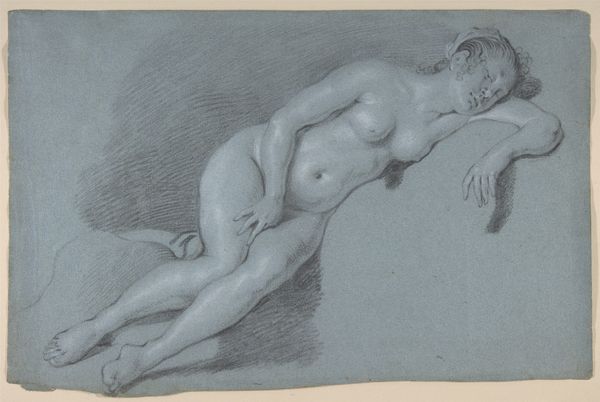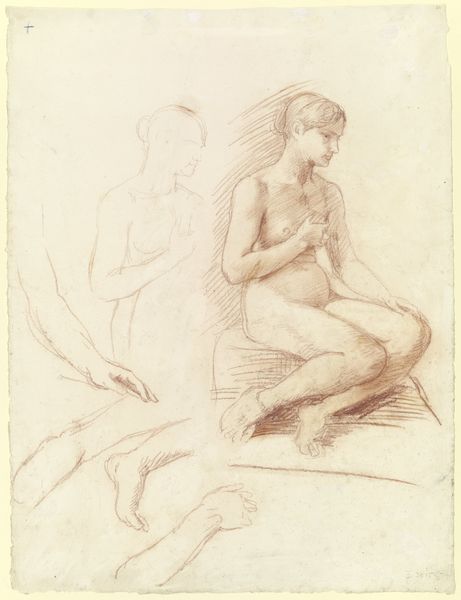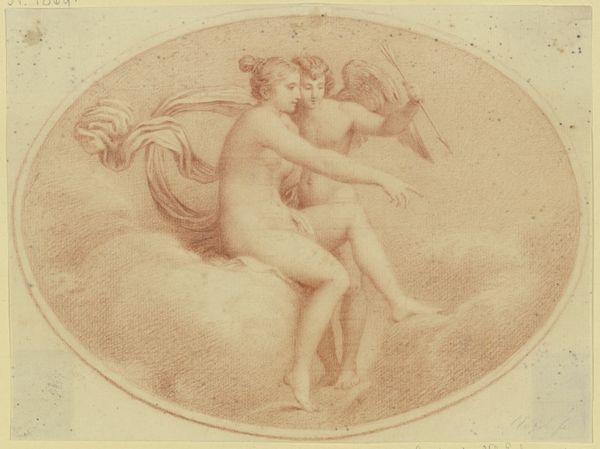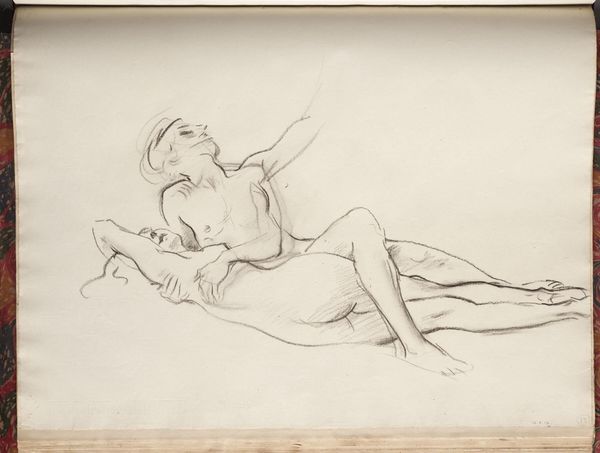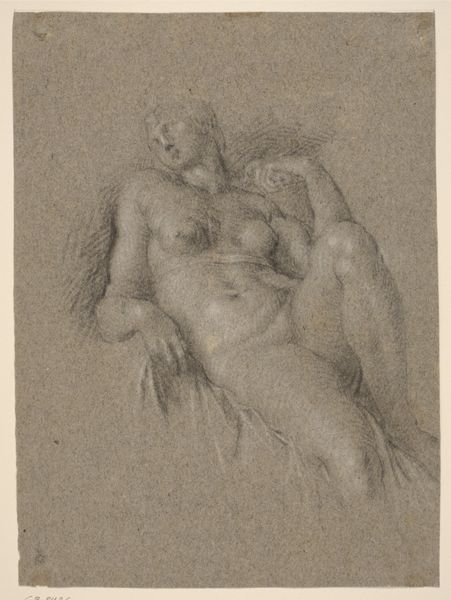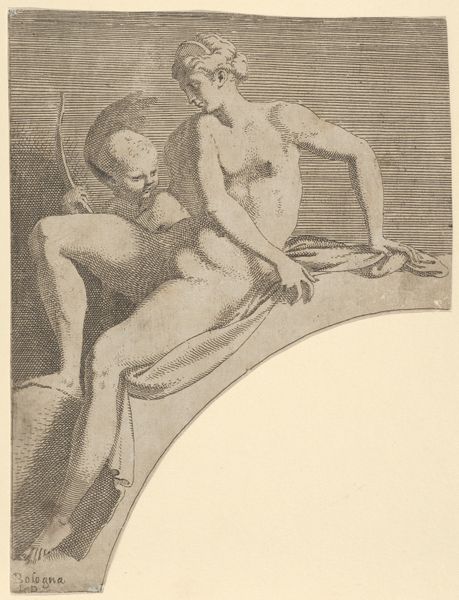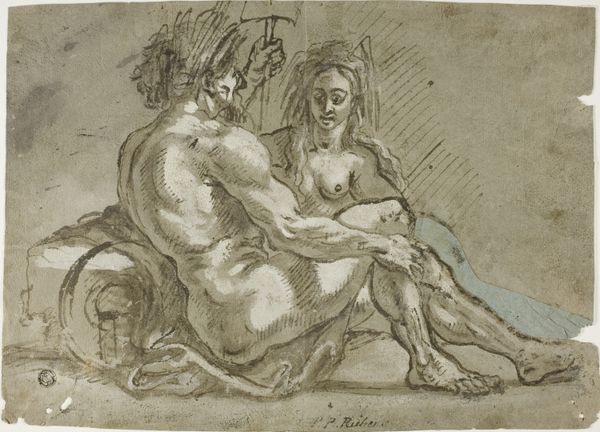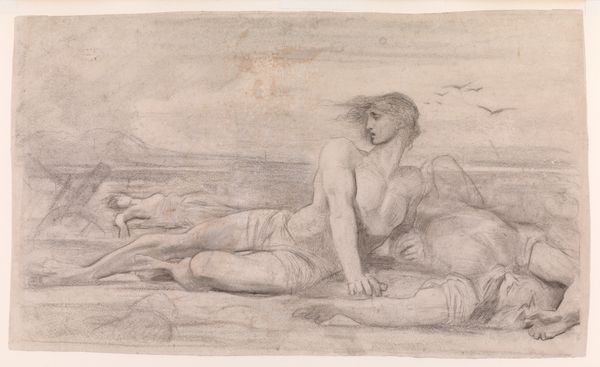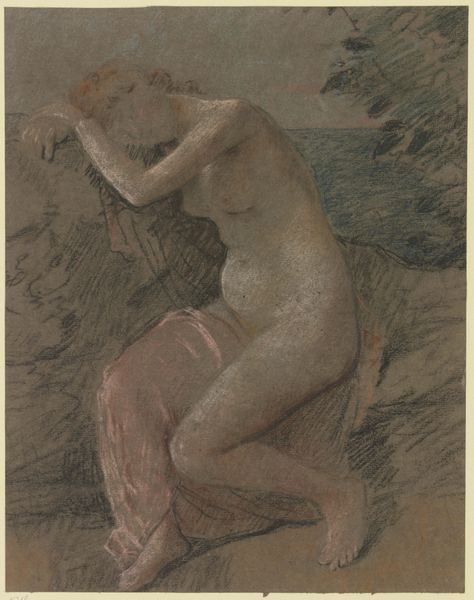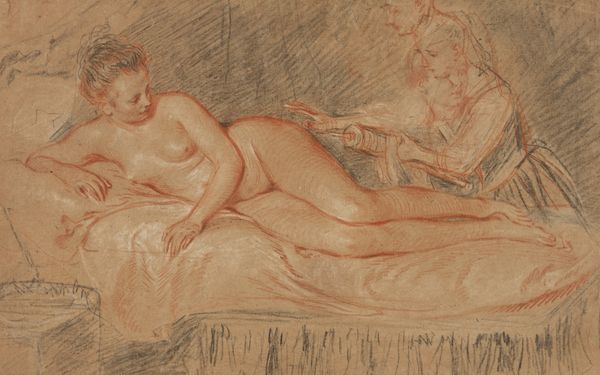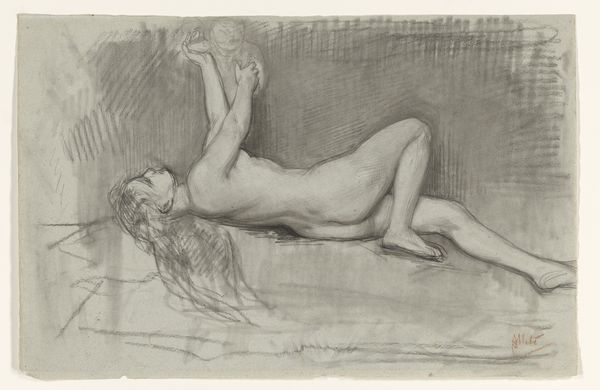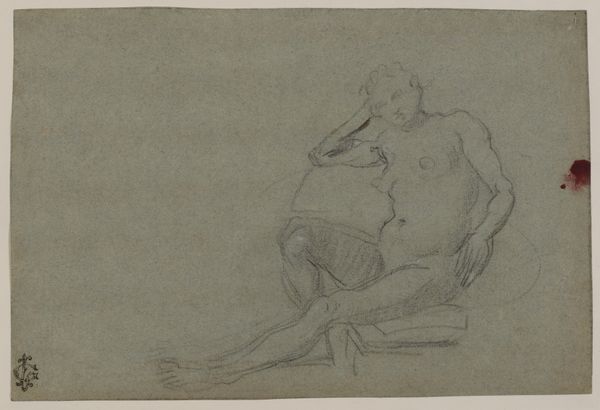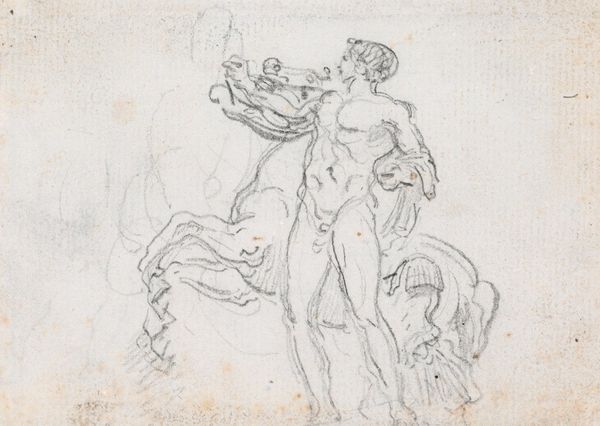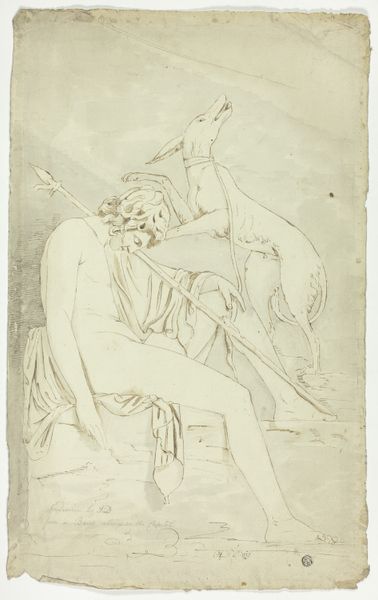
drawing, graphite
#
portrait
#
drawing
#
toned paper
#
facial expression drawing
#
light pencil work
#
pencil sketch
#
charcoal drawing
#
figuration
#
portrait reference
#
underpainting
#
symbolism
#
graphite
#
portrait drawing
#
history-painting
#
academic-art
#
nude
#
portrait art
#
fine art portrait
Dimensions: sheet: 28.89 × 33.02 cm (11 3/8 × 13 in.)
Copyright: National Gallery of Art: CC0 1.0
Editor: Here we have Elihu Vedder's "Study for Astronomy," created in 1892 using graphite and charcoal on toned paper. The figure has this calm, almost contemplative mood. What do you see in this piece? Curator: I see a deliberate engagement with classical ideals filtered through a 19th-century lens, particularly in its portrayal of the female nude and the allegorical representation of knowledge. This was created during a period grappling with rapid industrialization and scientific advancements, how might this image represent anxieties or aspirations tied to those societal shifts? Editor: Hmm, well she seems to personify a pursuit of scientific knowledge, a human endeavor separate from the fast, industrializing world? Curator: Precisely. Consider the book at the bottom labeled "Astronomia," almost dwarfed by the figure herself. How does Vedder's artistic choices here engage with, or perhaps challenge, prevailing societal norms regarding the roles and representations of women and scientific study? Editor: The way she is partially nude, a traditionally male gaze presentation, but coupled with a traditionally masculine, scientific discipline such as astronomy could suggest empowerment and agency… but is it really or is it a projection of ideals from a patriarchal society? Curator: The questions you are posing are critical! Exploring these complexities requires us to acknowledge the artist’s social positioning within a patriarchal structure while being aware of our own biases in interpreting Vedder's intention. Where does it fit into larger cultural narratives of women in the sciences and the complexities surrounding agency? Editor: Okay, I'm understanding the various forces at play here! Curator: Yes. Seeing art as part of a social matrix. I find reflecting on it is more insightful now.
Comments
No comments
Be the first to comment and join the conversation on the ultimate creative platform.
